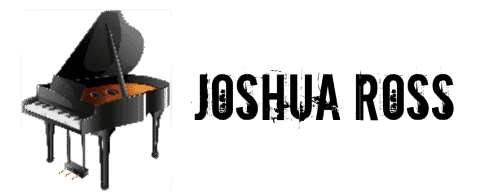As an Amazon Associate I earn from qualifying purchases.
A piano usually stays in tune for about 6 to 12 months, but this can vary depending on several factors. I’ve seen that a piano in a stable environment with moderate use may maintain its pitch well within this range.
On the other hand, a piano exposed to frequent changes in temperature and humidity or heavy use may require more frequent tunings.
Want to Learn Piano?Click Here

The importance of piano tuning cannot be overstated; it is essential for preserving the sound quality and overall health of your instrument. For instance, a concert grand in a performance hall is tuned before each performance to ensure the best possible sound, while the piano you practice on at home might be fine with biannual tunings.
Maintaining stability in pitch not only ensures that each piece you play sounds as it should but also helps to prevent string and structure damage over time.
Remember that each piano is unique and its tuning stability can be affected by its age, the quality of its construction, and how it’s played. If you notice your piano sounding off, it may be a sign that it’s time for a tune-up, even if it hasn’t been a full six months.
Factors Affecting Tuning Stability

When you’re trying to keep your piano in tune, various elements come into play. From the humidity in the air to how vigorously you perform, each factor can affect tuning stability. Let’s explore what keeps your piano sounding harmonious longer.
Determinants of Tuning Longevity
Environmental Influences: Humidity and temperature play crucial roles in the life of your piano’s tuning. Fluctuations in room temperature can cause the wooden components of your instrument, which make up about 80% of its structure, to expand and contract.
This can detune your piano more quickly than expected. Maintaining a consistent humidity level, ideally with climate control, helps prolong the intervals between tuning sessions.
Environmental Influences
Climate and Direct Sunlight: Extreme temperatures and direct sunlight can wreak havoc on your piano. Climate control not only regulates temperature but also combats humidity fluctuations, which are detrimental to your piano’s well-being.
Severe climate changes or placing your piano near a sunny window can accelerate the need for a tune-up.
Physical and Mechanical Variables
Age and Structural Components: Brand new pianos often require more frequent tunings as they are settling in. The steel strings and their elasticity work in tandem with the tuning pins, and over time, wear and tear can affect stability.
Ensuring that the tuning pins have adequate torque is paramount for piano longevity.
Human and Usage Elements
Usage and Pitch Raise: How often and vigorously you play can affect tuning. Even though playing regularly is essential for your skill, it can mean more tunings are needed due to changes in string tension. Likewise, a pitch raise may be necessary if your piano has been left untuned for an extended period or in the case of a recent move.
Tips To Help Your Piano To Stay In Tune Longer
Maintaining your piano’s tune is essential to preserve the beautiful melodies it produces. Here’s how you can help your piano hold its tune for a longer time.
Consistent Climate: Wood is the soul of your piano, expanding and contracting with humidity changes. To maintain a consistent tuning, keep the humidity between 45% and 55% and the temperature steady. A hygrometer can help you monitor these conditions.
Regular Tuning: Don’t wait for your piano to sound off; regular tunings prevent the strings and tuning pins from slipping. Pianos, especially new ones, need time to settle; so expect more frequent tunings in the first year.
- Break-in Tuning: For new pianos, the initial months are critical. The piano will require several tunings to reach stability.
- Seasonal Tuning: Twice a year should suffice for most climates.
Gentle Use: Treat your piano keys with respect. Heavy-handed playing can affect the action and tuning pins, potentially causing your piano to go out of tune.
Pinblock Care: The pinblock holds the tuning pins in place; as your piano ages, so does the pinblock impact the longevity of your piano’s tune.
Soundboard Check: The soundboard and strings work together to create your piano’s sound. A neglected soundboard can affect sound quality and tuning stability.
Professional Assessment: Regular check-ups from a piano technician will ensure that the tone, touch, and tuning are correct. It’s like visiting the doctor, but for your piano’s health!
Hello & thanks for stopping by! I’m a professional concert pianist and piano instructor. In the United States, I’ve given successful performances in several places including New York, Florida, Connecticut, & New Jersey, I have also performed internationally in Italy and made my Carnegie Hall debut in 2014. I enjoy blogging about the piano, the art of performance, general music, current events and the latest in music production.
